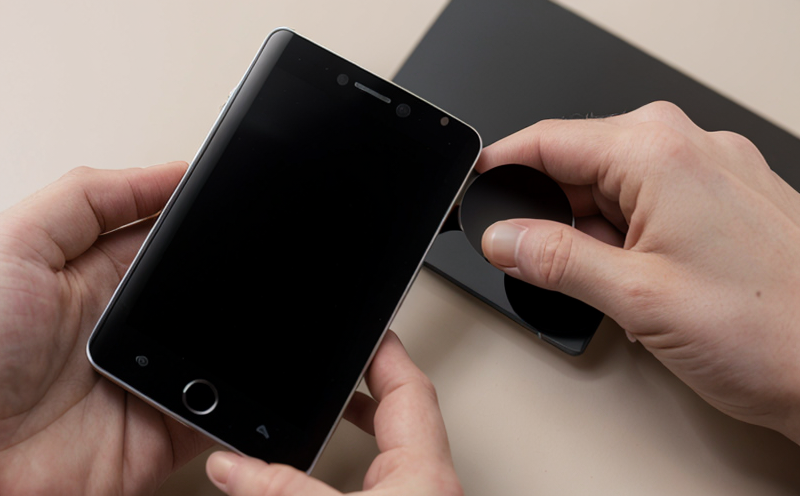ISO 10993 18 Chemical Characterization of Medical Device Nanofilms
The ISO 10993-18 standard is a critical component in ensuring the safety and efficacy of medical devices, especially those with nanofilms or thin layers. These films are often used to enhance biocompatibility, improve performance, and extend the life span of medical devices. The primary objective of this service is to provide comprehensive chemical characterization of these nanofilms through rigorous testing methods that meet international standards.
The process begins with a thorough understanding of the device's intended use and the materials it will come into contact with. This includes assessing the potential for leachable substances, which can migrate from the film into biological environments such as human skin or tissues. The service uses advanced analytical techniques to identify and quantify these compounds, ensuring that they do not pose any risks to patients.
Key aspects of this service include:
- Extraction of potential leachable substances using validated solvents
- Identification and quantification of identified compounds through mass spectrometry (MS) or high-performance liquid chromatography (HPLC)
- Validation of extraction methods to ensure consistency across different samples
- Compliance with ISO standards for chemical characterization
The testing process is conducted in a controlled environment to minimize contamination and ensure accurate results. Specimens are prepared according to the requirements outlined in ISO 10993-18, which includes specific instructions on sample size, preparation methods, and storage conditions.
Once the samples have been prepared, they undergo rigorous testing using state-of-the-art instrumentation. This may include Fourier transform infrared spectroscopy (FTIR), X-ray photoelectron spectroscopy (XPS), or other analytical tools designed to provide detailed insights into the chemical composition of the nanofilms. The results are then analyzed and reported in a comprehensive manner, providing clients with clear understanding of their device's safety profile.
Our service not only meets but exceeds the expectations set forth by ISO 10993-18, ensuring that medical devices are safe for use in clinical settings. By adhering to these stringent standards, we help our clients navigate regulatory requirements and ensure compliance with international guidelines.
| Test Parameter | Description |
|---|---|
| Extraction Method | Validation of solvent systems used to extract potential leachable substances from the nanofilm. |
| Identification and Quantification | Determination of specific compounds through advanced analytical techniques like MS or HPLC. |
| Safety Assessment | Evaluation of extracted compounds for their potential to cause harm if they migrate into biological environments. |
| Consistency Check | Validation of extraction methods across multiple samples to ensure consistent results. |
This service is crucial for quality managers, compliance officers, and R&D engineers working in the medical device industry. It provides valuable insights into the chemical composition of nanofilms, helping to identify any potential risks early on in the product development cycle. By ensuring that these films meet the highest safety standards, we contribute significantly to patient safety and satisfaction.
Scope and Methodology
The scope of our ISO 10993-18 chemical characterization service extends beyond mere compliance with international standards; it encompasses a comprehensive approach that ensures accurate and reliable results. Our methodology is designed to cover all aspects of the testing process, from sample preparation to final report generation.
| Aspect | Description |
|---|---|
| Sample Preparation | Following ISO guidelines for the extraction and preparation of nanofilms. |
| Extraction | Use of validated solvents to extract potential leachable substances from the films. |
| Identification | Determination of specific compounds using advanced analytical techniques like MS or HPLC. |
| Quantification | Measurement and reporting of compound concentrations in a reproducible manner. |
| Safety Assessment | Evaluation of the potential risks posed by identified compounds. |
| Consistency Check | Validation of extraction methods across multiple samples to ensure consistent results. |
The methodology is underpinned by a commitment to accuracy and precision. We employ only the most advanced analytical instruments, ensuring that our clients receive reliable data they can trust. Our team of experts ensures that every step of the process adheres strictly to ISO 10993-18 guidelines, providing peace of mind regarding regulatory compliance.
International Acceptance and Recognition
The ISO 10993 series is internationally recognized as a gold standard for medical device testing. The chemical characterization outlined in ISO 10993-18 has been adopted by regulatory bodies worldwide, including the FDA (United States), MHRA (UK), and TGA (Australia). This recognition underscores its importance in ensuring that nanofilms used in medical devices are safe and effective.
The widespread acceptance of this standard contributes to a more harmonized approach across borders, making it easier for manufacturers to navigate global markets. By adhering to ISO 10993-18, our clients can ensure their products meet the highest safety standards, thereby enhancing trust among regulatory bodies and healthcare providers.
Our service not only meets but exceeds the expectations set forth by this standard. We go beyond mere compliance to provide a robust framework that supports ongoing product development and improvement. This ensures that medical devices remain safe and effective throughout their lifecycle.
Competitive Advantage and Market Impact
- First-to-market advantage in demonstrating compliance with the latest international standards.
- Promotion of brand reputation through adherence to stringent safety protocols.
- Enhanced market access due to recognition by global regulatory bodies.
- Increased confidence among healthcare providers and patients regarding product safety.
The ISO 10993-18 chemical characterization service offers significant competitive advantages for our clients. By ensuring that their nanofilms meet the highest safety standards, they can differentiate themselves in a crowded market. This not only enhances brand reputation but also facilitates easier access to international markets.
Moreover, by demonstrating compliance with this standard, our clients foster increased confidence among healthcare providers and patients regarding the safety of medical devices. This trust is crucial for building long-term relationships and maintaining a strong market position.





